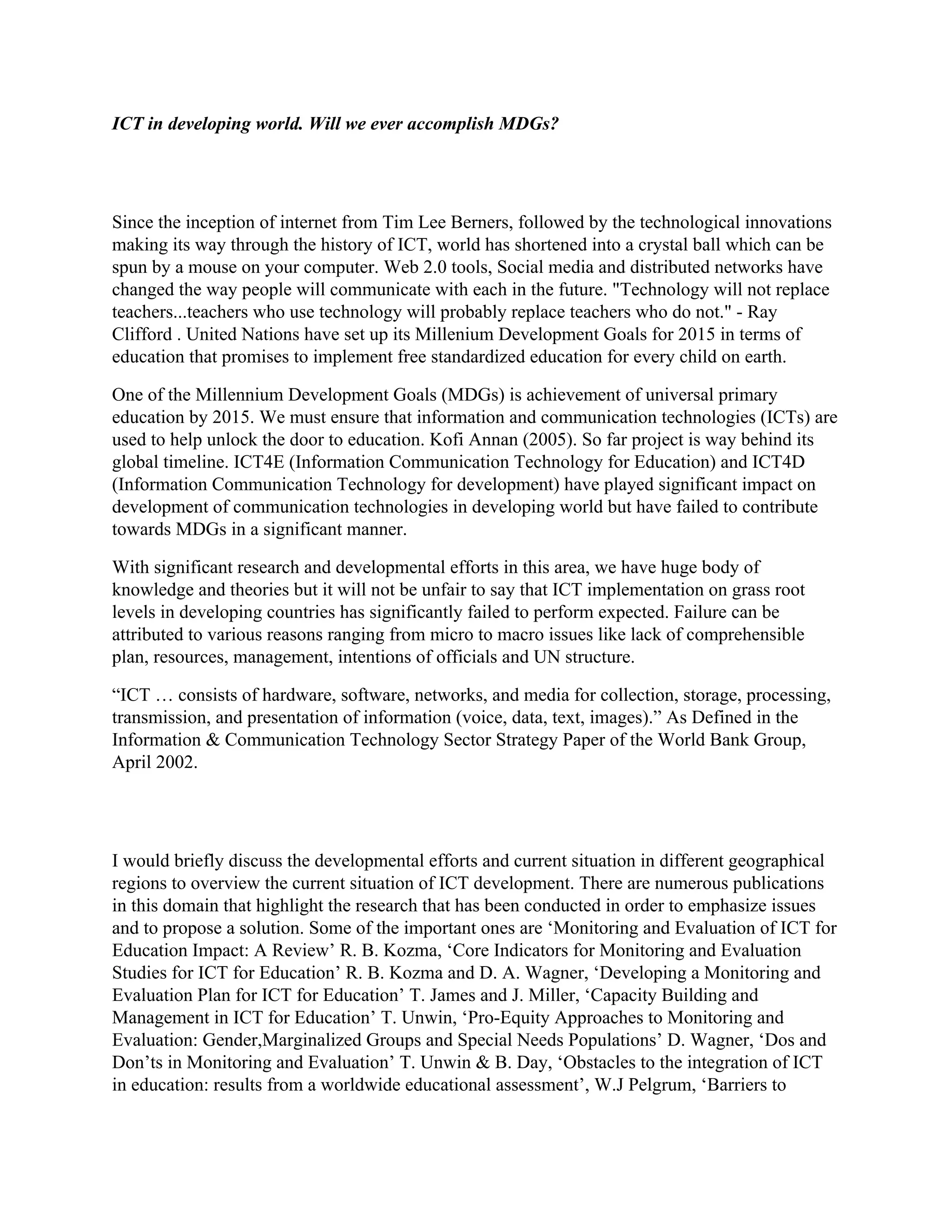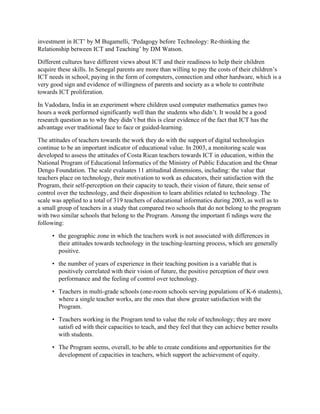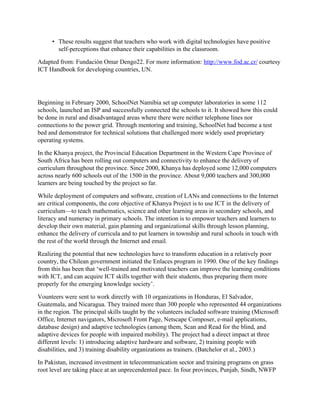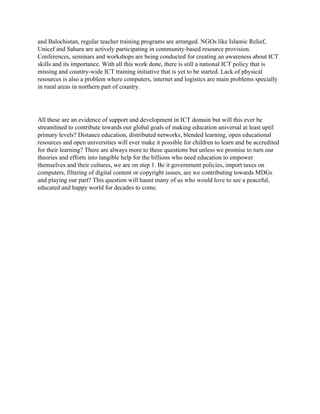Embed presentation
Downloaded 98 times





While ICT innovations and initiatives have helped expand access to education in developing areas, they have largely failed to meaningfully contribute to achieving the UN's Millennium Development Goals of universal primary education by 2015. A variety of factors have hindered effective implementation of ICT programs at the grassroots level, including lack of comprehensive planning, resources, management, and commitment from officials. Many research efforts and pilot programs have demonstrated the potential benefits of ICT for education, but sustainable solutions that can be scaled up to benefit all children have remained elusive. Unless current theories and technologies are successfully translated into tangible educational opportunities for billions of children in need, the goal of universal primary education by 2015 will not be accomplished.



